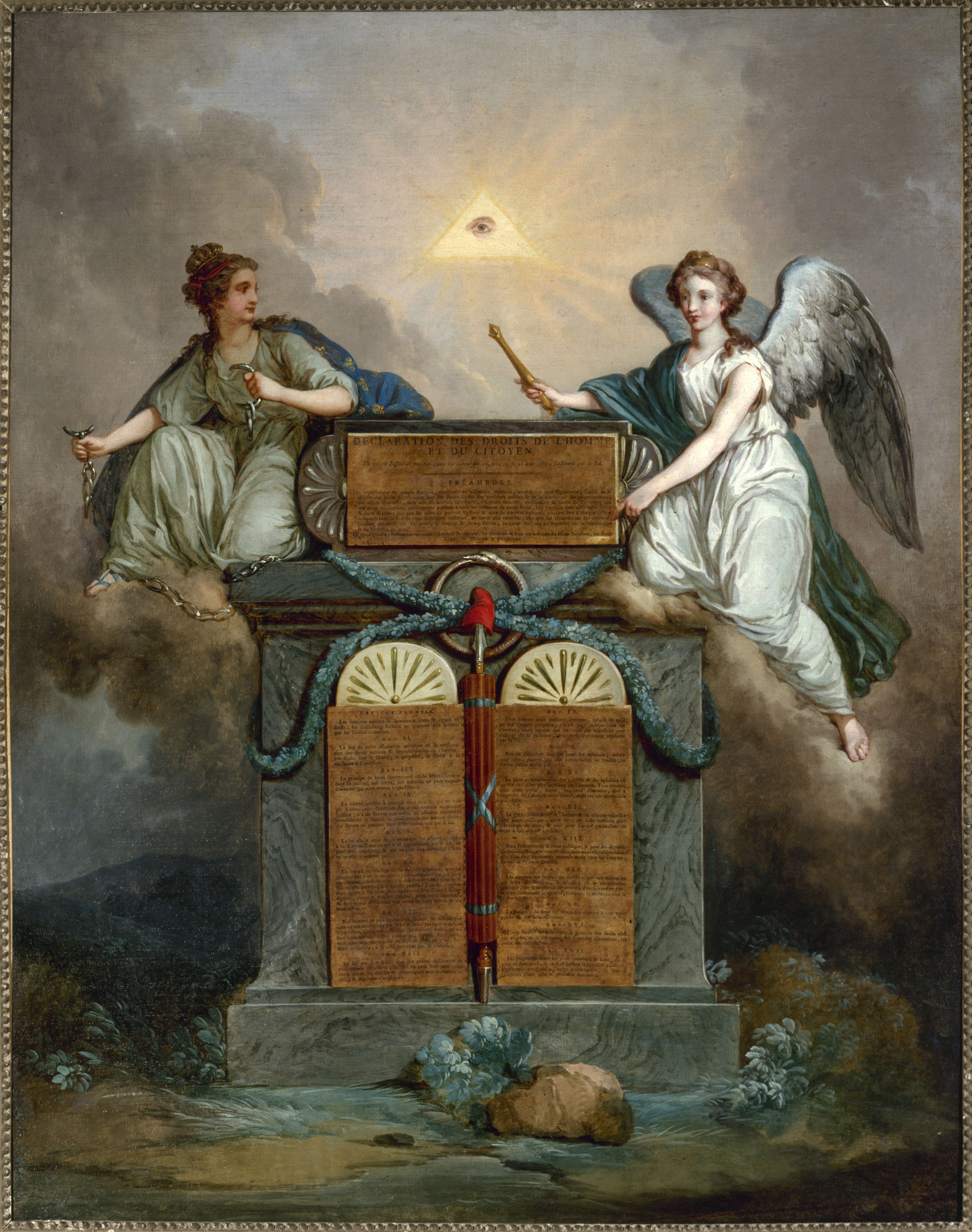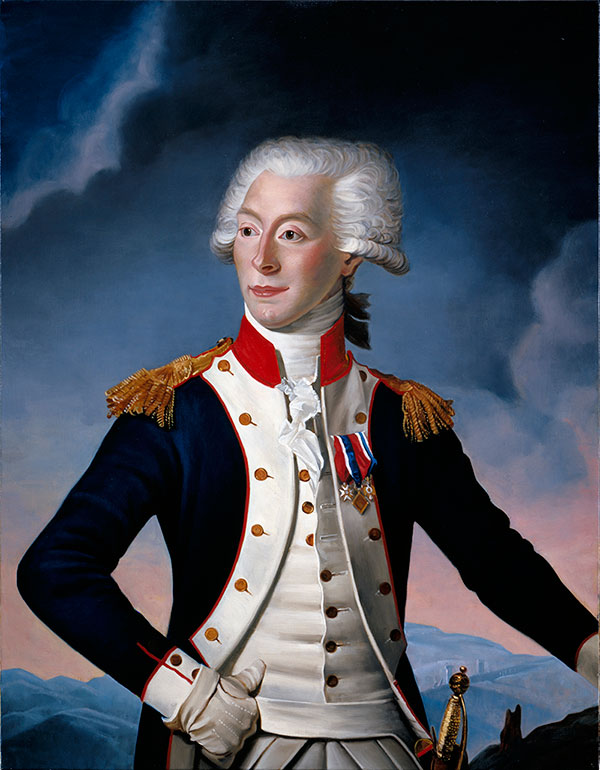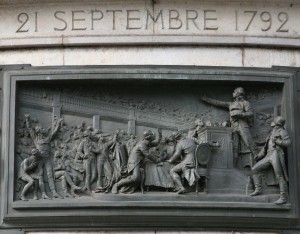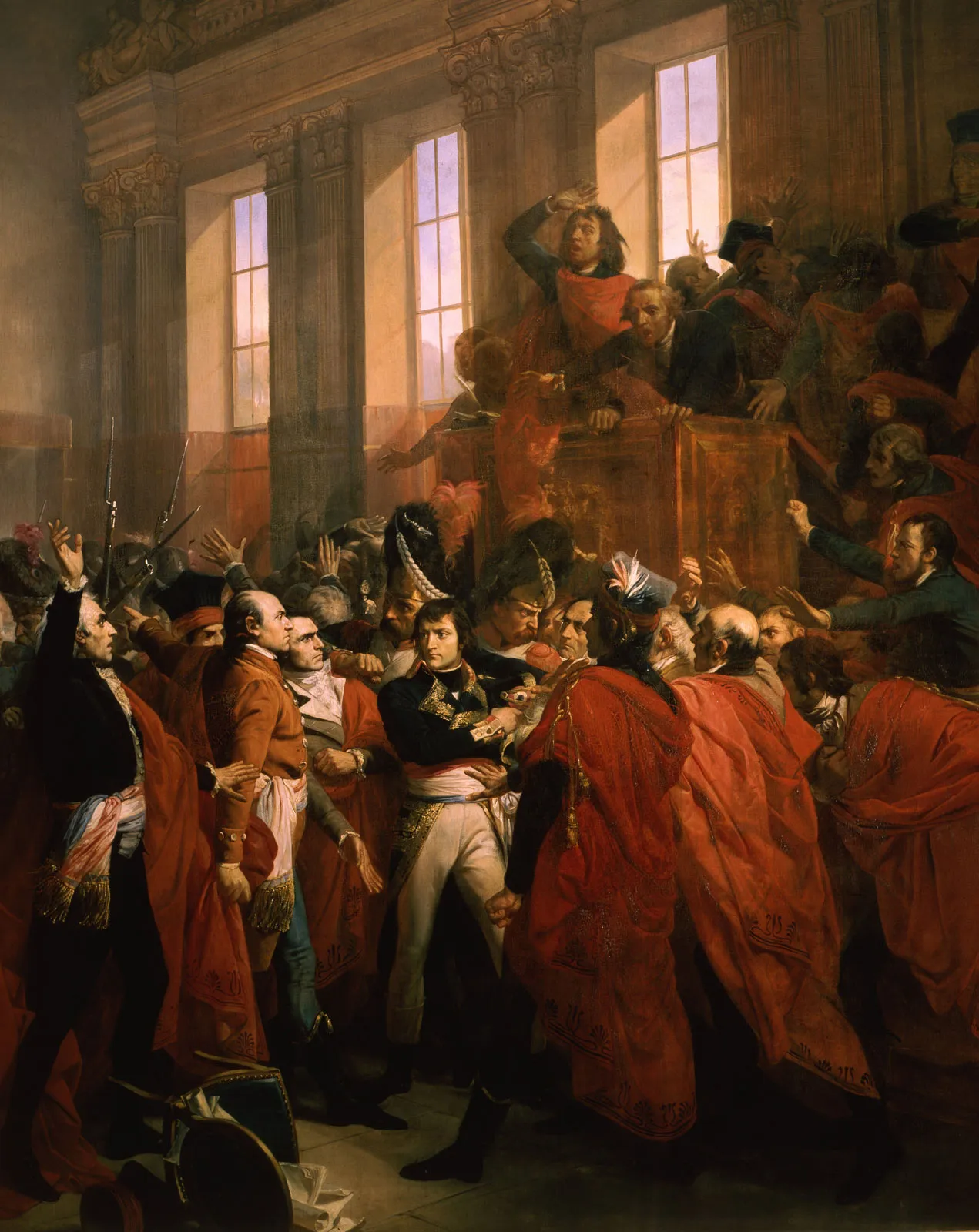“The National Assembly hereby completely abolishes the feudal system … Taxes shall be collected from all the citizens, and from all property, in the same manner and in the same form … All citizens, without distinction of birth, are eligible to any office or dignity, whether ecclesiastical, civil, or military” - The Decree Abolishing the Feudal System, August 11, 1789
The French Revolution: The Catalyst of Modern Democracy in Europe
Popular Sovereignty
Feudalism
The National Assembly ended feudalism which was the first step to a society where everyone is equal before the law.
The Declaration of the Rights of Man and of the Citizen
The declaration marked for the first time in French history where all male citizens were seen as equal in the eyes of the law. The National Assembly implemented Locke’s belief in universal natural rights as well as the idea that governments existed to protect their citizen’s rights.
"This expression of 'natural rights' has thus been an important foundation for the further development of human rights movements." - Harvard Dignity School

Declaration of the Rights of Man and of the Citizen, Jean-Jacques François Le Barbier
Courtesy of the British Library
“Men are born and remain free and equal in rights … preservation of the natural and imprescriptible rights of man. These rights are liberty, property, security, and resistance to oppression … Every citizen has a right to participate personally, or through his representative” - Declaration of the Rights of Man - 1789
"[The Declaration of Rights of Man] was adopted in full in August of 1789, and was considered a first step toward a French Constitution. The document was prepared and proposed by Marquis de Lafayette." - Columbia College
Leaders of the French Revolution
One of the leaders was Marquis de Lafayette who returned home after the American Revolution. He took up arms as the commander of the National Guard in the French Revolution. He was known as the “hero of two worlds.”
He fiercely believed in liberty and democratic ideals which came from his time at the Collège du Plessis and in America.
“Lafayette was the most important link between the American and the French Revolutions. As an ardent supporter of the United States' constitutional principles he called on all nations to follow the American example [of democracy and popular sovereignty].” - The National Archives
“Lafayette returned home to France where he continued to fight for liberty and equality for all mankind, in the midst of the French Revolution … authored the Declaration of the Rights of Man with Emmanuel Joseph Sieyès ... one of the most important documents in world history, and a direct influence on modern democratic principles across the world.” - American Battlefield Trust

Marquis de Lafayette (Painting), Joseph Boze
Courtesy of Th. Jefferson Monticello
“Neither privilege nor exception to the law common to all Frenchmen any longer exists for any part of the nation or for any individual … The legislative power is delegated to a National Assembly, composed of temporary representatives freely elected by the people" - The Constitution of 1791
Legislative Assembly & the Constitution of 1791
The Legislative Assembly replaced the previous assembly once the Constitution of 1791 took effect to guarante equality before the law. It put power in the hands of the people who elected officials according to the Enlightenment principles.
Universal Male Suffrage
The National Convention was instituted after radicals raided the Legislative Assembly. Under the Constitution of 1793, the monarchy was abolished, and the French Republic was born. All male citizens ‒ not just property owners ‒ were given the right to vote.
“Popular sovereignty includes all French citizens … Population is the sole basis of national representation” - Constitution of 1793
“The Constitution guarantees all Frenchmen equality, liberty, security, property, public debt, freedom of worship, public schooling, public relief, unrestricted freedom of the press, the right to assemble in groups, and the enjoyment of all the rights of man” - Constitution of 1793

"A plaque showing the National Convention declaring a French republic." - Alpha History

General Bonaparte in the Council of the Five Hundred, at Saint-Cloud, 10 November 1799, by
François Bouchot
Courtesy of the History Website of the Foundation Napoleon
The Directory & the Constitution of 1795
After the Reign of Terror, surviving members of the convention passed a new constitution that established France's first bicameral legislative body: The Council of Five Hundred and the Council of Ancients. The new government reflected Montesquieu’s beliefs in the separation of powers.
The Constitution of 1795 laid the foundations for a five-man Directory and a two-house legislature elected by male citizens.
“The Executive Power shall be delegated to a Directory of five members appointed by the Legislative Body, which for such purpose performs the functions of an electoral body, in the name of the nation.” - Constitution of the Year III (1795)
The Directory did not last, and the rise of a new leader marked the end of the French Revolution. Nevertheless, democracy does not stop when a new power comes into the scene.